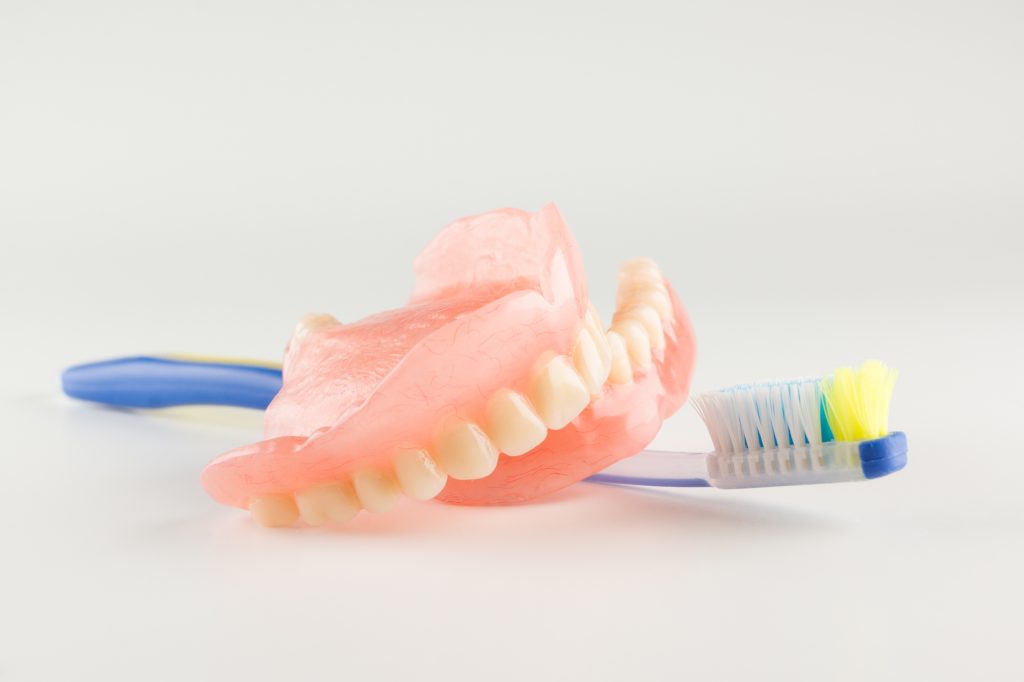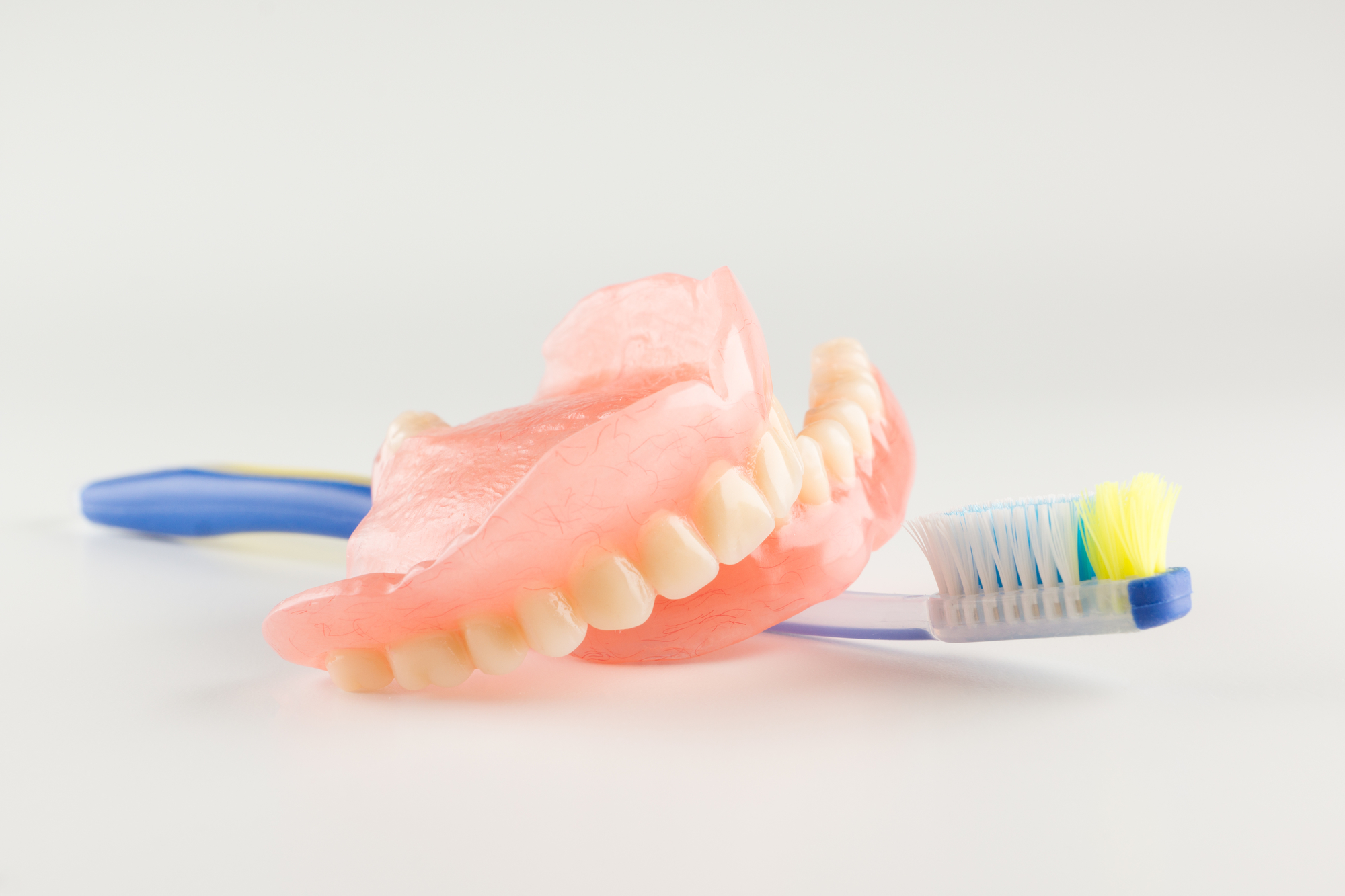A Few Quick Facts About Dentures

For those of you who are brand new to dentures, it can be a little overwhelming to find all of the information you need.
At The Denture & Implant Centre, we want your transition to dentures to be as smooth and easy as possible. Here we’ll give you a brief look into life with dentures so you can feel more confident about your new set of teeth.
Are There Different Types of Dentures?
Yes! Once we evaluate the condition of the patient’s natural teeth, we can determine whether they’ll need complete or partial dentures.
Partial dentures: partial dentures are a great option for people who still have most of their natural teeth but need to fill in a few gaps.
They’re generally made with an acrylic or metal frame that comfortably attaches to the remaining teeth. Acrylic frames are often used while your gums and bone heal from tooth extractions — metal frames are generally better as a long-term solution.
Partial dentures are designed to extend the life of your remaining natural teeth and ensure you can speak and eat with ease.
Complete dentures: Complete dentures are required when all of the natural teeth are lost or removed. The patient needs to wait until their jaw and gums have healed before getting their permanent dentures — but don’t worry.
At The Denture and Implant Centre, we can make you a set of immediate dentures so you’re not without teeth while you heal.
You can also get implants put into your jaw which can increase the stability of your dentures — read more about dental implants here.
Can Dentures Impact the Way A Person Eats, Speaks, & Feels?
For patients with damaged or missing teeth, dentures often significantly improve their quality of life. Missing and damaged teeth can cause many negative and sometimes unexpected side effects.
Your smile directly affects your confidence. If a patient is missing several teeth, they may be less inclined to speak, laugh, smile, or even join social gatherings to being with.
Eating with dentures will definitely require some practice at first — but it becomes a breeze. Start with soft foods and slowly introduce solids. However, it’s best to avoid sticky and chewy if you can.
Learning to speak with dentures also takes some time. The best thing you can do is to slow down your speaking to ensure you’re not getting ahead of yourself. Practice when you’re at home and you’ll be telling stories in no time.
How Long Should My Dentures Last?
With proper care and maintenance, you should get a minimum of 5 years from your dentures.
However, it’s important to be aware that without your natural teeth in place, your jaw bone changes shape over time.
You should be checking in with your denturist regularly and ensure that everything is fitting properly to get the most time out of your dentures as possible — especially if they feel loose or fall out.
Accidents happen. For many minor repairs, they can be fixed within a few days. If you notice more severe problems, it’s best to take them in as soon as you can to prevent further damage.
Are Dentures Worn All the Time?
Dentures should be worn during the day and removed at night. Taking your dentures out at night gives your gums and jaw a break — plus the dentures should be cleaned and soaked as well.
When you first get your dentures, you’ll need to wear them for a few days straight. They act as a bandage for any teeth that have been extracted and also help you identify any potentially uncomfortable or painful spots.
Get the Knowledge You Need at The Denture & Implant Centre
We understand that dentures can be confusing as a first time user. At The Denture & Implant Centre, we specialize in making the transition comfortable, affordable, and easy for all of our patients.
Schedule an appointment with us today.


